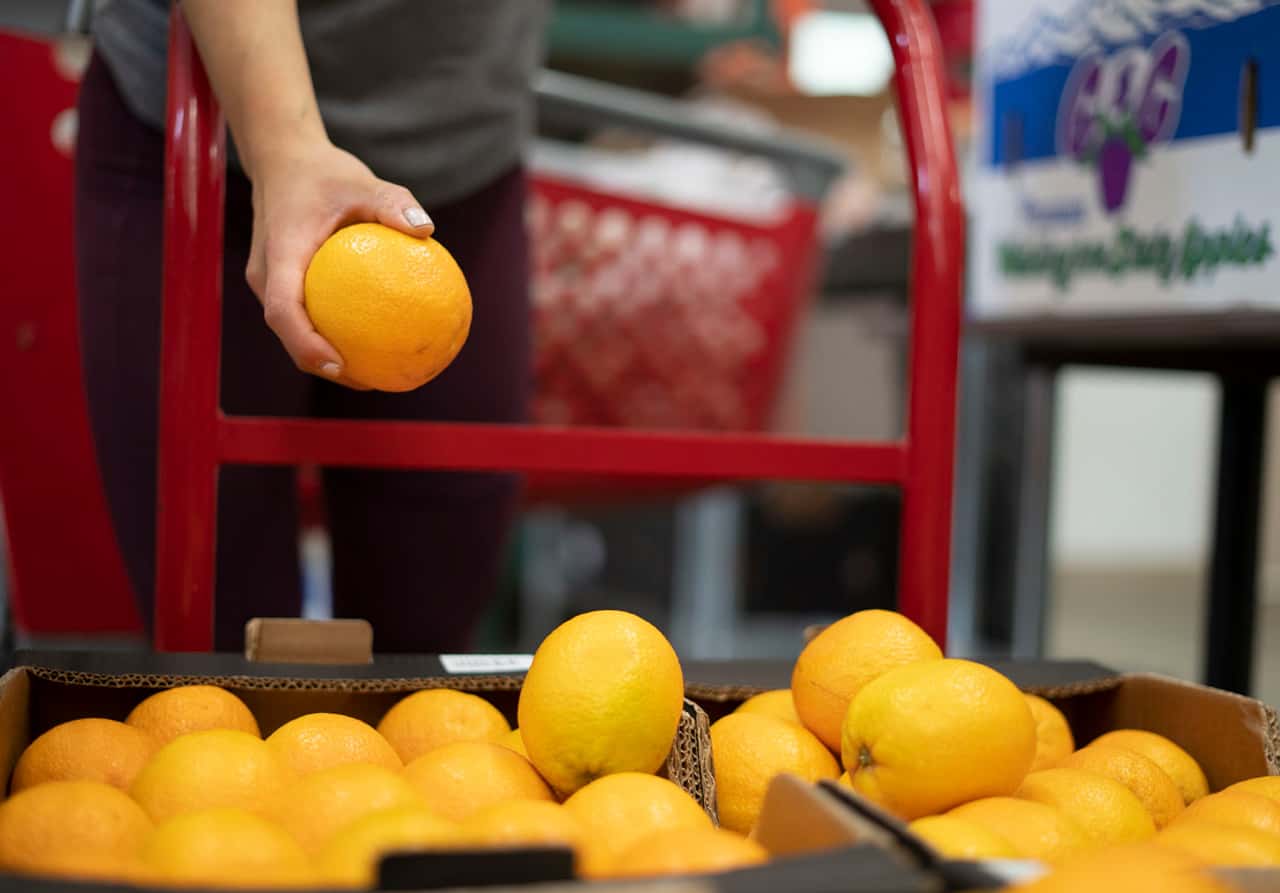Food bank clients consider suicide as it becomes more difficult to get by in Mississauga
Published November 30, 2022 at 2:50 pm

Content Warning: This story discusses suicide.
Life has become so difficult for people living in poverty in Mississauga that some are considering suicide.
Recently, the head of Mississauga’s largest food bank sounded the alarm as more and more city residents need help feeding their families and are falling even deeper into poverty.
Now, Meghan Nicholls, CEO of The Mississauga Food Bank, says the situation has gotten more dire. At least five clients have mentioned ending their own lives through the Medical Assistance In Dying (MAID) legislation, she says. The MAID law expanded eligibility in March 2021.
The subject of MAID has come up in routine calls to clients to check on delivery dates, Nicholls tells insauga.com. At least five clients have mentioned this in the last few weeks, she says.
When asked the usual “How are you?” the clients disclose that they’re struggling with depression or financially. Then they say they have heard people talking about medically assisted death, and say they are also considering it.
She finds the situation “deplorable.”
“I don’t think that this should be something folks are having to consider,” Nicholls says. “They should be able to meet their needs and live a dignified life.”
The food bank is implementing new training for staff and volunteers who make these calls.
“We are now providing active suicide intervention training for our staff and additional mental health support to help them manage these kinds of conversations with our clients who are struggling.”
With rising housing and food costs and few increases in Ontario’s social assistance programs, it has become more difficult to live.
“Thirty per cent of our clients rely on Ontario Works, or the Ontario Disability Support Program, as their main source of income. And those rates are so low, that people are struggling to survive,” Nicholls says.
The minimum wage is also not enough to cover basic expenses.
“Costs have gone up, people used to be able to shuffle money from one pocket to the other to pay one bill, and get food from the food bank,” she adds. “Now, they can’t. There’s just not enough dollars.”

Meghan Nicholls, CEO of The Mississauga Food Bank, spoke to council this month.
In the struggle to make ends meet, people’s lives are becoming more difficult.
“People are cutting corners, people are not eating meals, they’re going without, they’re doing all kinds of things to try and survive,” Nicholls says.
Because people who give to the food bank may also be struggling, both cash and food donations to The Mississauga Food Bank are down.
They have set a big goal in Holiday Food Drive to raise $1.7 million and 450,000 pounds of food. The drive started Nov. 14 and goes until Jan. 6. Visit the website for more information on how to donate.
But there is more people can do.
One way to help is to support the food bank — the other is to make sure your voice is heard.
“(People can) contact their elected officials and say, ‘This is unacceptable in my community. I don’t want a place where people are living in such dire poverty that they’re considering ending their life. I want a community where people thrive,'” says Nicholls.
She thinks many people need to speak up and push elected officials into action.
“I think we as community members have to decide what kind of community we want to live in. For me, as a resident of Mississauga, I want a community where people can thrive and have fulfilling lives,” says Nicholls. “We need to move towards a place where everybody in our community can be healthy and happy and successful.”
If you or someone you know is considering suicide, there is help available. The Talk Suicide Canada line is available 24/7 every day for calls, toll-free at 1-833-4566 or for texts from 4 p.m. to 12 a.m. Learn more on the website.
There are also local resources listed here.
INsauga's Editorial Standards and Policies








